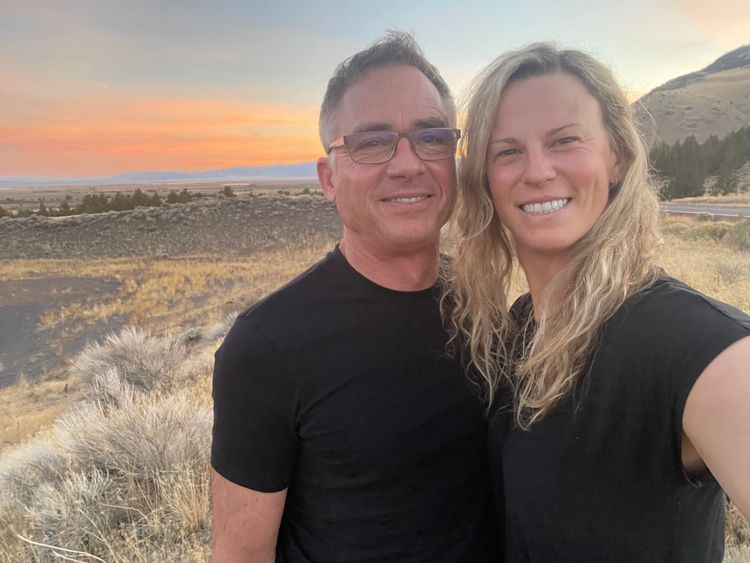Apology Accepted

Learning to give an impactful apology is one of the most useful skills I have gained through therapy, and I use it fairly often. For both big and small issues.
Why is it one of my favourite skills?
Because it’s my safety net when I f#ck up.
I wish I could say I did things right all the time and never said the wrong thing, or never hurt somebody’s feelings, but that is simply not the truth. I do try to be the best version of myself, but there are times when either my self awareness fails me, or I find myself caught in such an electrical storm of emotion that I drop the ball so to speak, saying something I later regret.
Time to apologize.
In my experience, this is not always an easy task; in fact, it’s often quite hard.
Why?
Because to truly apologize, we need to sit in the shame felt by the person we have hurt. This is the only way out of the burning building.
Have you ever received an apology that left you feeling unsatisfied?
If so, can you pin point why?
My guess is that it might not have felt like the person really meant it.
When we don’t feel like the person actually meant it, we don’t feel confident that they aren’t going to hurt us again; making their apology hard to trust.
So how do we help the other person feel like we really meant it?
This is the point where I do my best to lean into empathy, hard. The way I feel about the event isn’t as important here… Our egos are extremely clever at quickly absolving us of any wrongdoing and can give us many different escape routes to quickly exit the very uncomfortable feeling of having hurt another person.
“You may have felt a certain way, but I really didn’t mean it like that!” - Therefore it’s not my fault you feel bad.
“Well you say hurtful things to me too, so I guess now we’re even.” - Therefore I shouldn’t feel bad, as you are just as much to blame here.
Truly apologizing to another is to take ownership of our actions and the words that we speak. To help that person feel truly understood, we need to take a moment to really sit with what they feel; without any “buts” or excuses.
When we truly sit in the shame that person is feeling, acknowledge the pain that they have felt because of something we said or did, and take ownership of ourselves and our behaviour, with no excuses; only then can the repair be done.
So, why is this so hard to do?
Because shame feels awful.
Shame is like an insidious serpent, slithering up our spine. We can feel it there, coiled; but we sure as hell don’t want to acknowledge it.
Because to acknowledge it, means that we open the gates to the plethora of uncomfortable feelings that are lurking within us all; and in they flood.
“I am a bad friend: husband, wife, lover.”
“I am unworthy.”
“I am untrustworthy.”
“I am unlovable.”
“I am stupid”
“I am a failure.”
This is what I believe stops many of us from owning the hurt we cause others. Writing those words, I understand why those feelings can stop us; because they are so painful. No one wants to feel shame. But shame does not have to be internalized. We can use it to learn a valuable lesson, and let it be on its way.
What we may be missing if we bypass the flash of shame, is how incredibly powerful repair can be. Paradoxically, admitting we have hurt somebody and genuinely apologizing (with no “buts”), can elicit not only a restorative healing response, but also a ton of trust and respect.
Watching somebody really take ownership of their words and actions never gets old for me. It takes a heck of a lot of courage, consideration, respect, and vulnerability to do something like that. That is the kind of person I want to be.
Think of a time somebody successfully gave you a heartfelt apology. How did it feel?
Maybe you felt seen, understood; validated?
What if, instead of seeing apologizing as us “failing” at life, we can reframe our thoughts. We can see it as an opportunity to step into the mold of our best selves.
We can give our loved ones an incredible gift.
We can take action; and a stand for who we want to be.
We are all human, and we all make mistakes.
So let’s take those mistakes, and turn them into the kind of building blocks that can create an unshakable foundation for the relationships we treasure most.
Let’s get out there and start owning our shit and apologizing like the badass MFs we are.
RECAP
Lets keep to simple:
- Apologize - “I’m so sorry for xyz.”
- Own Your Shit - “The way I treated you in that situation was really not acceptable. I don’t want to hurt you like that again.”
- Sit in the shame - “That must have made you feel really bad/upset/angry/betrayed/unimportant when I did that.” *Remember to feel it
- Repair - “Can you forgive me? How can I do things differently next time/How can I fix this?”





Member discussion